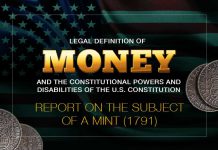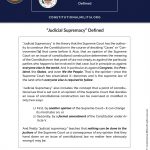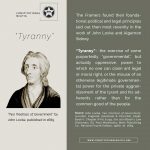The Monetary Powers and Disabilities in the Pre-Constitutional Period
As a Rule of Constitutional Construction:
The first step towards elucidating the true meaning of the Constitution’s monetary provisions is not to consult decisions of...
Adoption of the “Dollar” as the “Money Unit” Prior to the Ratification of the...
The Constitutional "Dollar"Both Article 1, Section 9, Clause 1 and the Seventh Amendment to the Constitution refer explicitly to the “dollar”—in the one case,...
“Bills of Credit”: Outlawed by the Constitution
"Bills of Credit": Outlawed by the ConstitutionIn the the Federal Convention of 1787, the initial draft of the Constitution reported by the Committee of...
Report on the Subject of a Mint 1791
Alexander Hamilton's Mint Report (1791)In his Report, Hamilton urged Congress to adopt silver and gold as the nation’s monetary substances, at an exchange ratio...
Coinage Act of 1792
Coinage Act of 1792In this Act, Congress followed common-law tradition by continuing the use of silver, gold, and copper as “Money”. It reiterated the judgment...
The Civil War and “Bills of Credit”
The Civil War and “Bills of Credit”“The immediate aftermath of the Civil War was a time of unprecedented legal flux, during which new doctrines...
Inflation: Congress’s Constitutional Powers and Disabilities
Inflation: Congress's Constitutional Powers and DisabilitiesMore important than the constitutional power of Congress to end inflation is its constitutional duty to do so—or, put...
“To regulate Value”
“To * * * regulate * * * Value ” and the cognate power “To * * * fix the standard of Weights and...
“To coin Money”
The power “To coin Money”Article I, Section 8, Clause 5 sets out the sole, express grant of power in the Constitution to bring "Money"...
The Power to Declare “Money” a Legal Tender
The following analysis is an excerpt fromTO REGULATE THE VALUE OF MONEY:AN ANALYSIS OF THE POWER OF GOVERNMENT TO CREATE AND SET A VALUE ON...








































